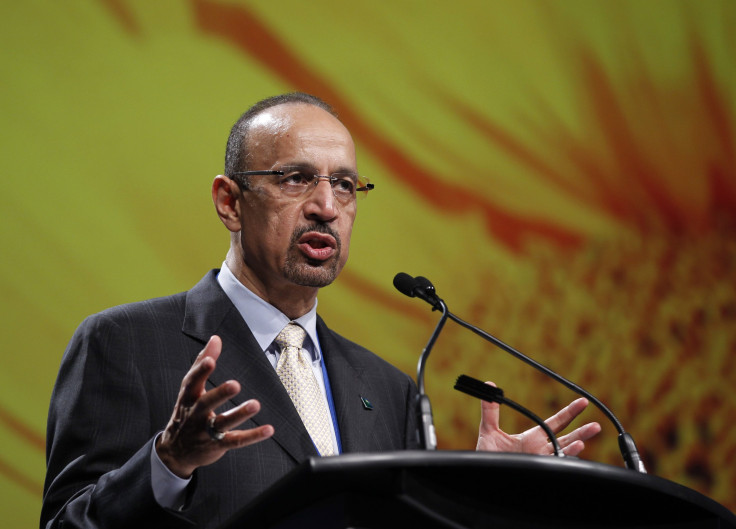With Crude Prices At Historic Lows, Saudi Arabia Pledges To Keep Oil Coming

A year after the price of crude went into free fall, the Kingdom of Saudi Arabia has said that it has no plans to reduce oil drilling. In comments to the Financial Times, Saudi officials said they see no reason to slow the supply of oil in advance of an international producers' meeting in December.
Khalid al-Falih, chairman of the Saudi Arabian Oil Company, or Saudi Aramco, told the FT, “The only thing to do now is to let the market do its job,” indicating that the country has no intention of providing reprieve to the battered global oil industry. The news isn't likely to help the price of crude escape from below $50, where it has held steady for most of 2013.
The international producers' cartel OPEC shook markets in November 2014 with its decision to keep production unchanged, allowing the price to fall from a 2014 high of $115 a barrel to lows around $45 in 2015. International investments in drilling have dried up as active U.S. rig counts fell by more than 1,000 in the past year.
While the Saudis had limited supplies in years past to help stabilize oil prices, the new policy has helped Saudi oil claw back market share it lost as U.S. production boomed in 2014. Saudi officials said the policy will be proved sensible in one to two years, as global growth returns and demand picks up to match the outsized supply. They predicted that oil will return to $70-$80 per barrel around 2017.
The decision hasn't been an easy one for the Kingdom. Oil sales account for roughly 80 percent of Saudi government revenues in normal years. Public debt in the cash-rich country is expected to grow to 20 percent of gross domestic product in 2015. The International Monetary Fund has urged the Saudi government to cut back on spending to adjust for decimated oil revenues, while a new office was established recently to slash budgets.
“We knew that it was going to be painful,” al-Falih told the FT. “But the extent of the pain went beyond our expectations.”
© Copyright IBTimes 2024. All rights reserved.












